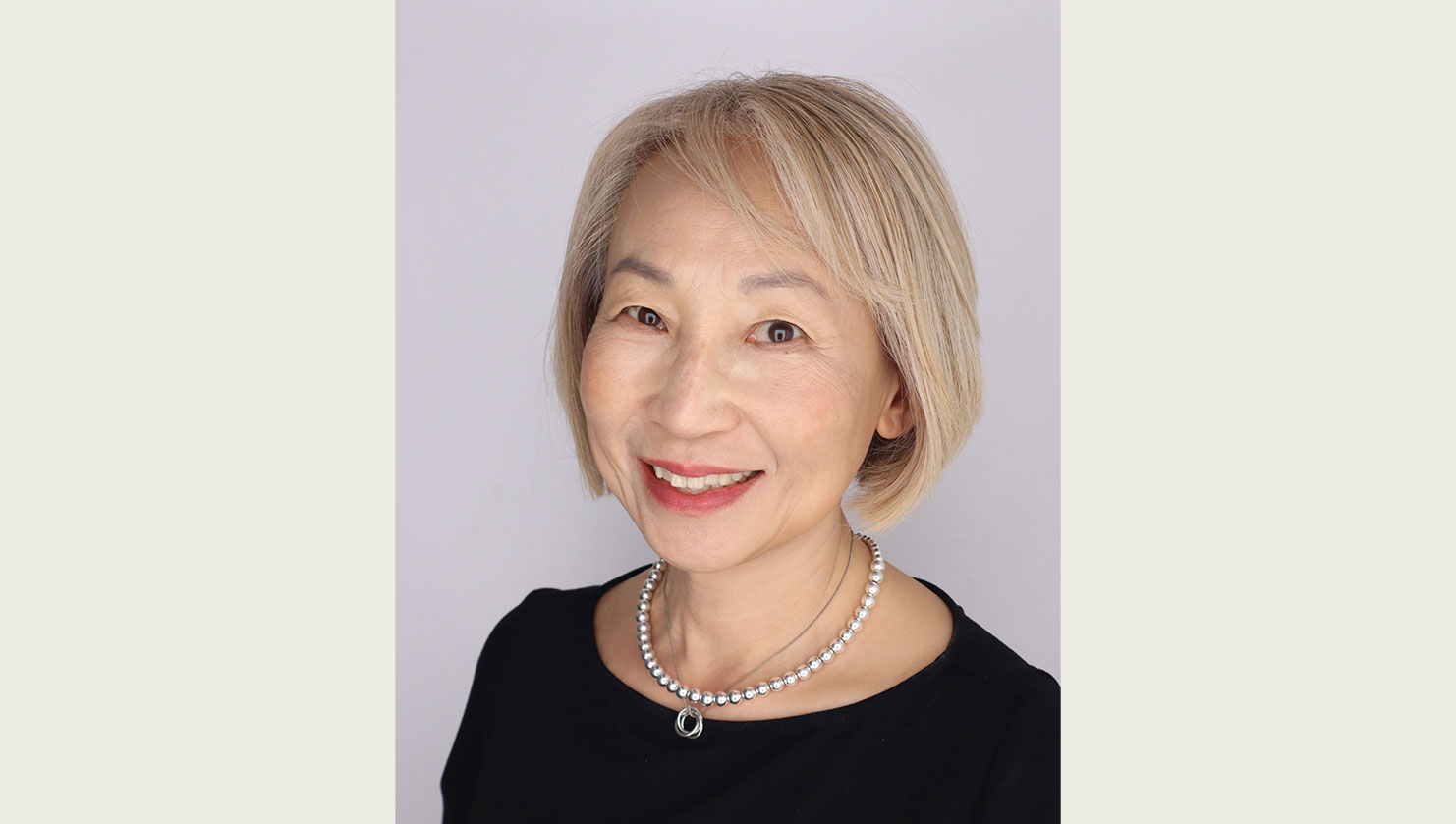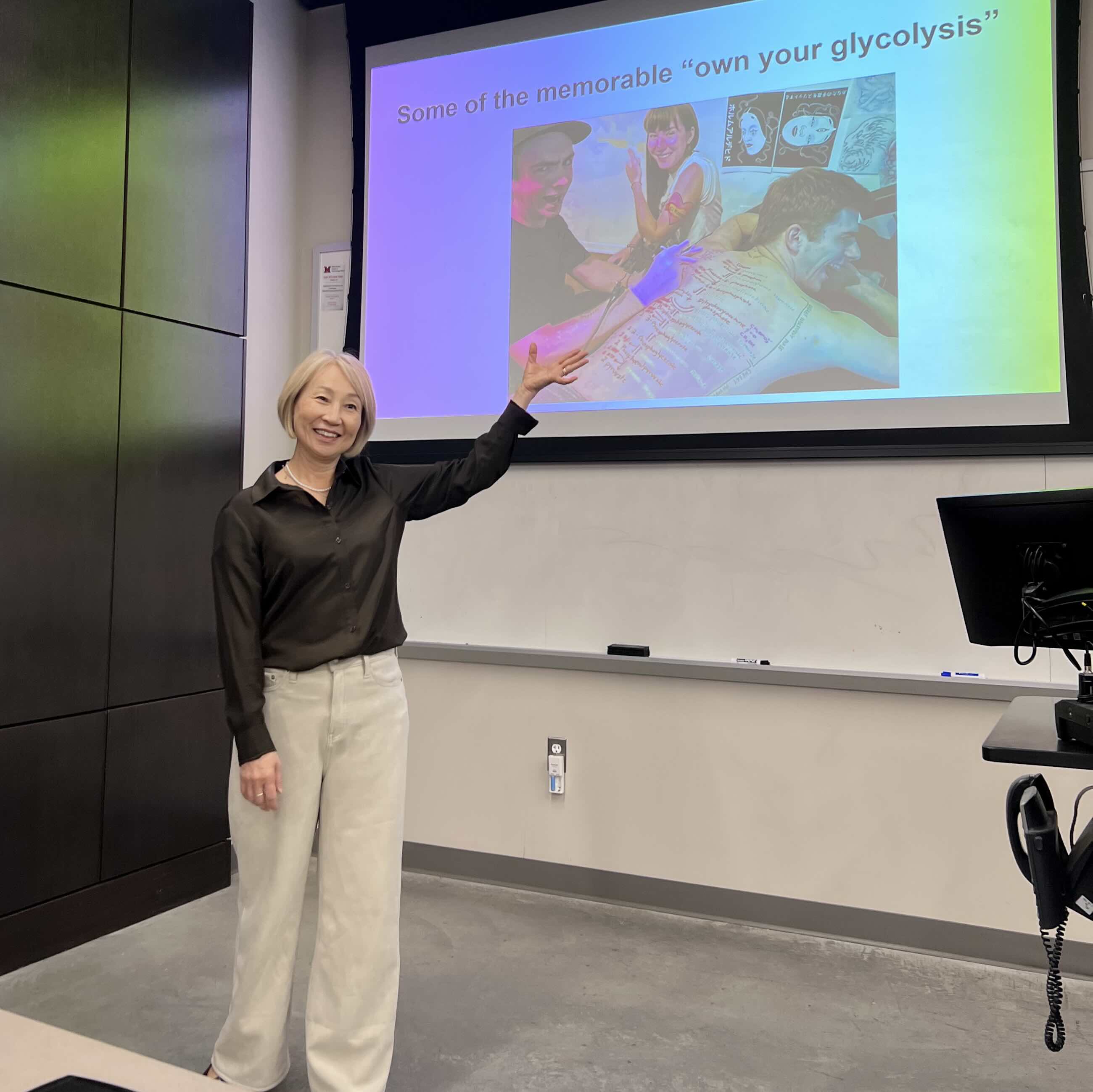Professor Heeyoung Tai Honored as 2025 CAS Distinguished Educator
Tai is credited for inspiring students to find their ‘why’

Professor Heeyoung Tai Honored as 2025 CAS Distinguished Educator
When Heeyoung Tai, teaching professor of Chemistry and Biochemistry, asks her students, “Why are you here?” she isn’t simply prompting attendance – she’s encouraging reflection. For Tai, the question defines both her classroom and her career. It’s a philosophy that has now earned her the title of 2025 CAS Distinguished Educator, honoring her as one of the university’s most impactful teachers and mentors.
A philosophy built on purpose
During her Distinguished Educator lecture, Tai shared how she helps students uncover their purpose and see learning as a lifelong pursuit. “What is the goal of a college education?” she asked the audience. “To become leaders – in your family, community, or society – who can make informed, responsible, decisions.”
Her teaching, she explained, is about giving students the tools to do just that: developing critical thinking, considering multiple perspectives, and recognizing their own capacity for growth.
A journey rooted in resilience
Born and raised in South Korea, Tai earned her degree from Yonsei University, later pursuing graduate studies at Clemson University and Penn State University. She arrived in Oxford in 1991, first as a researcher and later as a faculty member and mother raising three children.
She didn’t plan on teaching, but when she began lecturing at Miami, everything clicked. Since then, she’s taught a wide range of courses, from introductory chemistry to upper-level biochemistry, and has become known for her enthusiasm and empathy in every class.
“I’m here because of my students,” Tai said. “And because of the mentors, colleagues, and friends who have guided and supported me along the way.”

Transforming the classroom experience
Tai’s teaching style is both rigorous and creative. In her Fundamentals of Biochemistry (CHM432) course, she connects molecular processes to real-world examples such as high-fructose corn syrup and enzyme inhibitors in drug design. She uses humor, too, once comparing attendance to the price of a Taylor Swift ticket, reminding students that each class is worth about $57 of their tuition. “Get your money’s worth!” she told them with a laugh.
Her students remember that blend of seriousness and joy. Erica Foster, a former chemistry student, said Tai’s class was the first time she saw chemistry as “a way to understand life, not just memorize it.”
“Dr. Tai made me realize that science is about curiosity and compassion,” Foster said. “She cared about us as people, not just as students.”
Sydney Bair, another former student, said Tai’s influence extended beyond the classroom.
“She taught me how to think, not just what to think,” Bair said. “Her lessons about asking ‘why’ have stayed with me throughout college. She’s the kind of professor who makes you want to do better – because she believes you truly can.”
Innovation through empathy
Tai’s creativity shines especially in her Chemistry Capstone (CHM 491: Chemistry in Society), where she replaced traditional research papers with an interdisciplinary science-fiction writing project. Students read speculative fiction, explored real scientific issues, and wrote stories examining ethical and social consequences of emerging technology.
The project, “An Exercise in Empathy: Innovating a Chemistry Capstone Course Through Science Fiction Writing,” earned special recognition from the Howe Center for Writing Excellence for its transformative approach.
“I wanted students to engage science not only as scientists,” Tai explained, “but as writers and as empathetic thinkers.”
A lasting impact
Now recognized as the 2025 CAS Distinguished Educator, Tai joins a select group of faculty whose teaching embodies Miami University’s liberal education ideals. Her legacy continues through the hundreds of students who still email her years after graduation, often just to say thank you.
“She makes even the hardest topics feel meaningful,” Foster said.
For Tai, the recognition is both humbling and affirming. “Every student who walks into my classroom reminds me why I am here, and why I love what I do.”